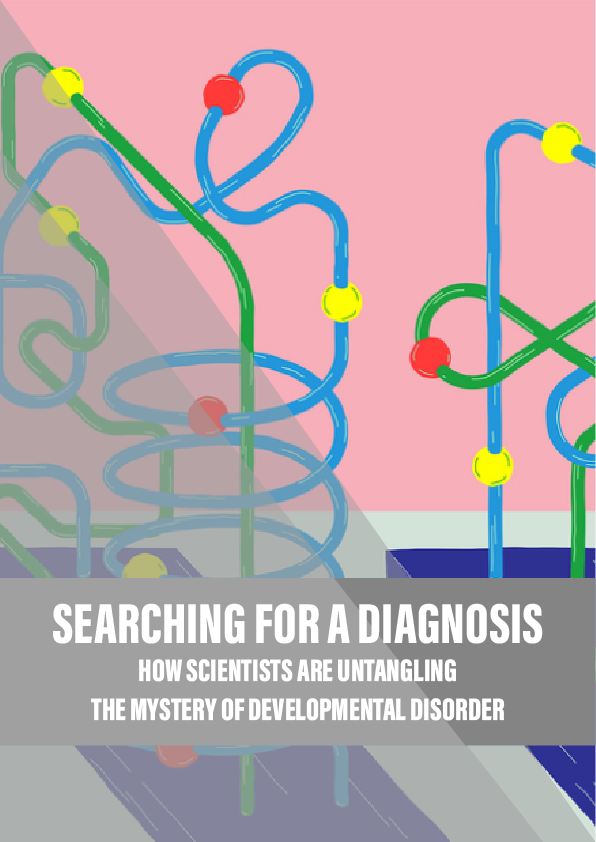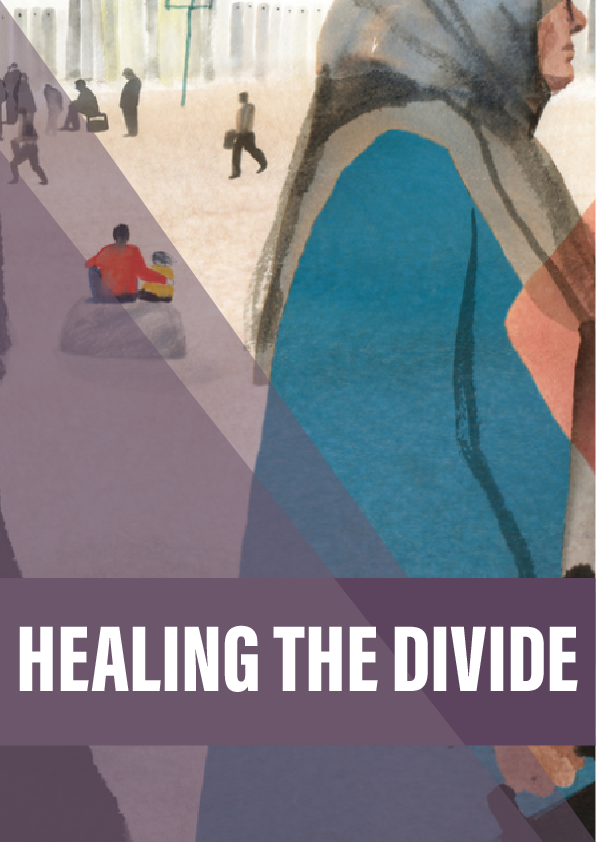vie Walker sits on Alison’s lap, playing a game she never grows tired of: turning her mum’s hand over and over, stroking and examining it. When she takes a break and looks around, it is with the open-mouthed look of curiosity and awe that you see in many infants. Evie’s vocabulary currently consists of a repertoire of squawks and “mmm” sounds. In the past few months, she has begun to stand unaided for short periods – even taking a few steps in her walking frame – progress that fills her parents with immeasurable pride, not to mention hope for the future.
Despite her baby-like demeanour, Evie is eight years old. She has PURA syndrome, a vanishingly rare developmental disorder that didn’t officially exist until four years ago. Developmental disorders affect children’s normal mental or physical development. Before she was diagnosed, all Evie’s parents knew was that she suffered from ‘global developmental delay’: a vague umbrella term for a set of symptoms with myriad potential causes – some, but not all of them, associated with a heartbreakingly poor prognosis.
Yet thanks to advances in genome sequencing, more and more families like the Walkers are receiving an accurate diagnosis for their child’s condition, and with it a clearer picture of what the future holds. In some cases, like Evie’s, it reveals they are suffering from a completely new disease; in others – albeit a minority of cases, for now – it reveals a potential treatment for a condition that had hitherto seemed untreatable.
It’s not only children with developmental disorders whose lives are being transformed by this technology. In October 2018, NHS England will launch its Genomic Medicine Service, 13 genomic medicine centres that will provide whole genome sequencing to people with undiagnosed rare diseases and cancer – another disease of mutated genes.
By uncovering the exact genomic changes driving tumour growth, doctors can choose more effective treatments. In so doing, the NHS says England will become one of the first countries in the world to routinely offer “comprehensive and equitable access to the latest in genomic testing and management for the whole country, regardless of condition and where people live”.
Reference:








